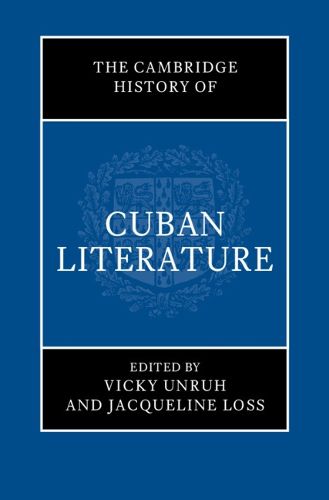Readings Newsletter
Become a Readings Member to make your shopping experience even easier.
Sign in or sign up for free!
You’re not far away from qualifying for FREE standard shipping within Australia
You’ve qualified for FREE standard shipping within Australia
The cart is loading…






Extending from the seventeenth to the twenty-first century, The Cambridge History of Cuban Literature is the first book in English to tell the intricate story of Cuban literary-intellectual culture from the seventeenth-century to the twenty-first century. This landmark book highlights the intricacies of linguistic and cultural translation embodied in telling a story in English about a body of work expressed predominantly in Spanish, but also French, Haitian Kreyol, Angolan Portuguese, and English. Broad in its scope, this book encompasses such major figures as Gomez de Avellaneda, Heredia, Placido, Manzano, Villaverde, Marti, Casal, Carpentier, L. Cabrera, Manach, Loynaz, Pinera, Lezama Lima, and Cabrera Infante, as well as theatre and performance groups, film, post-revolutionary projects, post-1989 Special Period writers, and literature of Cuba's diasporas. It highlights four key features weaving through Cuban literary history: its engagement with international networks; its key role in cultural identity debates throughout Latin America; persistent debates about race, gender, and class; and the tropes of travel and movement-voluntary, exploratory, enslaved, migratory, or exilic.
$9.00 standard shipping within Australia
FREE standard shipping within Australia for orders over $100.00
Express & International shipping calculated at checkout
Extending from the seventeenth to the twenty-first century, The Cambridge History of Cuban Literature is the first book in English to tell the intricate story of Cuban literary-intellectual culture from the seventeenth-century to the twenty-first century. This landmark book highlights the intricacies of linguistic and cultural translation embodied in telling a story in English about a body of work expressed predominantly in Spanish, but also French, Haitian Kreyol, Angolan Portuguese, and English. Broad in its scope, this book encompasses such major figures as Gomez de Avellaneda, Heredia, Placido, Manzano, Villaverde, Marti, Casal, Carpentier, L. Cabrera, Manach, Loynaz, Pinera, Lezama Lima, and Cabrera Infante, as well as theatre and performance groups, film, post-revolutionary projects, post-1989 Special Period writers, and literature of Cuba's diasporas. It highlights four key features weaving through Cuban literary history: its engagement with international networks; its key role in cultural identity debates throughout Latin America; persistent debates about race, gender, and class; and the tropes of travel and movement-voluntary, exploratory, enslaved, migratory, or exilic.